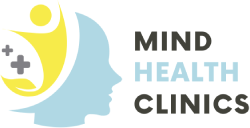Symptoms
Some people with ADHD have fewer symptoms as they age, but some adults continue to have major symptoms that interfere with daily functioning. In adults, the main features of ADHD may include difficulty paying attention, impulsiveness and restlessness. Symptoms can range from mild to severe.
Many adults with ADHD aren’t aware they have it — they just know that everyday tasks can be a challenge. Adults with ADHD may find it difficult to focus and prioritize, leading to missed deadlines and forgotten meetings or social plans. The inability to control impulses can range from impatience waiting in line or driving in traffic to mood swings and outbursts of anger.
Adult ADHD symptoms may include:
Impulsiveness
Disorganization and problems prioritizing
Poor time management skills
Problems focusing on a task
Trouble multitasking
Excessive activity or restlessness
Poor planning
Low frustration tolerance
Frequent mood swings
Problems following through and completing tasks
Hot temper
Trouble coping with stress
Inquire About This Service

Adult ADHD symptoms may include:
- Impulsiveness
- Disorganization and problems prioritizing
- Poor time management skills
- Problems focusing on a task
- Trouble multitasking
- Excessive activity or restlessness
- Poor planning
- Low frustration tolerance
- Frequent mood swings
- Problems following through and completing tasks
- Hot temper
- Trouble coping with stress
Medications used to treatment of ADHD:
Medications used to treat adult ADHD can be broadly classified into two categories: stimulants and non-stimulants.
Stimulants: These are often the first line of treatment and are generally more effective for many people suffering from adult ADHD. Here are approved or common medications from the 2 categories of stimulant medications:
Methylphenidate-based medications (with available forms and sizes in Canada):
- Concerta (extended-release methylphenidate), Available in 18mg, 27mg, 36mg, 54mg tablets.
- Ritalin ER (or SR) (extended-release methylphenidate), Available in 18mg, 20mg, 27mg, 36mg, 54mg tablets.
- Biphentin (extended-release methylphenidate), Available in 10mg, 15mg, 20mg, 30mg, 40mg, 50mg, 60mg, 80mg capsules.
- Foquest (extended-release methylphenidate), Available in 25mg, 35mg, 45mg, 55mg, 70mg, 85mg, 100mg capsules.
- Methylphenidate CR, Available in 10mg, 15mg, 20mg, 30mg, 40mg, 50mg, 60mg, 80mg capsules.
- Quillivant ER (extended-release methylphenidate), Available in 20mg, 30mg, 40mg chewable tablets.
- Ritalin (methylphenidate), short acting. Available in 5mg, 10mg, 20mg tablets.
Amphatime-based medications (with available forms and sizes in Canada):
- Vyvanse (lisdexamfetamine), Available in 10mg, 15mg, 20mg, 30mg, 40mg, 50mg, 60mg, 70mg capsules.
- Amphetamine XR or SR (extended-release amphetamine), Available in 5mg, 10mg, 15mg, 20mg, 25mg, and 30mg capsules.
- Dextromphetamine SR (extended-release dextroamphetamine), Available in 5mg, 10mg, 15mg capsules.
- Dexedrin (Dextromphetamine), short acting. Available in 5mg tablets.
Long-acting formulations are the preferred forms of these medications due to decreased potential for abuse.


Non-Stimulants: Non-stimulant medications are an important alternative for individuals with ADHD who may not respond well to stimulants or have contraindications for their use. They can also be added to stimulants medications to improve their effectiveness. Here are the commonly prescribed non-stimulant medications for ADHD:
- Atomoxetine (Strattera): Atomoxetine is a selective norepinephrine reuptake inhibitor (NRI) and is the first non-stimulant medication approved by the FDA for the treatment of ADHD in children, adolescents, and adults. It works by increasing levels of norepinephrine in the brain, which helps improve attention and reduce impulsivity and hyperactivity.
- Guanfacine (Intuniv, Tenex): Guanfacine is an alpha-2A adrenergic receptor agonist. Intuniv is a long-acting form of guanfacine specifically approved for the treatment of ADHD in children and adolescents. It helps improve symptoms by affecting receptors in the brain that are thought to improve attention and reduce distractibility and hyperactivity.
- Bupropion (Wellbutrin): While not specifically approved by the FDA for the treatment of ADHD, bupropion is sometimes used off-label. It is an atypical antidepressant that affects the neurotransmitters norepinephrine and dopamine, which can help improve focus and reduce impulsivity and hyperactivity in individuals with ADHD.
- Clonidine (Kapvay, Catapres): Clonidine is another alpha-2 adrenergic agonist. Kapvay is the extended-release form specifically approved for the treatment of ADHD. Clonidine can help manage symptoms by affecting the brain’s receptors, leading to improved impulse control and reduced hyperactivity.
- Tricyclic Antidepressants (TCAs): Certain TCAs, such as imipramine (Tofranil) and nortriptyline (Pamelor), are sometimes used off-label to treat ADHD. They work by affecting the levels of norepinephrine and serotonin in the brain, which can help improve attention and reduce ADHD symptoms.
Considerations about medications:
- Effectiveness: Stimulants are often the first line of treatment and are generally more effective for many people. They work by increasing levels of certain neurotransmitters in the brain.
- Side Effects: Both types of medication can have side effects. Stimulants can cause increased heart rate, insomnia, and anxiety, while non-stimulants can cause fatigue, dizziness, and stomach upset.
- Personalization: The best medication and dosage can vary widely from person to person. A healthcare provider will usually start with a low dose and adjust based on effectiveness and side effects.
- Monitoring: Regular follow-ups with a healthcare provider are important to monitor the effectiveness of the medication and any potential side effects.
- It’s essential to consult with a healthcare provider to determine the most appropriate treatment plan for ADHD, as they can provide personalized advice and closely monitor progress.



